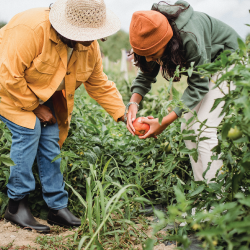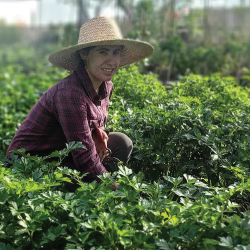Roberta Louis interviews nutritionist Sara Keough for Price-Pottenger.org:
Roberta Louis: How do today’s plant-based meats differ from the veggie burgers of the past, which have been sold in health food stores for decades?
Sara Keough: The veggie burgers of the past mostly utilized vegetables and beans with some spices, herbs, and seasonings added. They were basically made from whole foods that underwent very minimal processing. In contrast, the leading plant-based meats on the market, which primarily include the brands Impossible Foods and Beyond Meat, consist largely of ultra-processed ingredients. They contain compounds such as soy protein isolates or pea protein isolates, which are often stripped out of the whole foods through the use of hexane or other harmful chemicals.
These modern plant-based meats are so highly processed that they no longer resemble whole foods. In fact, they barely even support the word plant. They are more like Frankenfood products that have been created in a lab – especially in the case of the Impossible Foods products, because these include novel ingredients such as genetically engineered soy leghemoglobin… They’re nothing like the veggie burgers of the past.
Roberta: Why is there so much consumer interest in these products?
Sara: When we look at the research surveys that have been done on consumer interest in plant-based meats, it’s very clear that health is a big motivator. There’s a lot of marketing behind these products in promoting the idea that there is a health benefit in moving away from meat, eggs, and dairy and adopting a more plant-based diet. But unfortunately, consumers are buying into a lie and what I consider to be very powerful propaganda.
Animal products have been routinely vilified as promoting heart disease, cancer, and other chronic diseases. However, there is actually no solid evidence to support these claims. In my professional opinion – based on what I see in my clinical practice, as well as what I hear from colleagues and read in the research – animal products from healthy regenerative farms are some of the most nutrient-dense and healing foods on the planet.
People are obviously also concerned about environmental issues, and I think that’s another big draw to these plant-based meats. Again, though, people are buying into a lie that’s being promoted by the plant-based meat advocates. We hear over and over how terrible animal agriculture is for the environment – and it’s true that factory farms such as concentrated animal feeding operations (CAFOs) are destructive to the planet. However, what we’re not hearing is the story about regenerative agriculture.
Regenerative agriculture is essentially farming with nature, not against it. It involves learning to move away from chemical inputs and instead utilize natural practices, including grazing livestock, to rebuild ecosystems and regenerate soil. I highly encourage your readers to watch the award-winning movie Kiss the Ground so they can see how pasture-raised animals can be part of a healthy, well-functioning ecosystem that can help the planet.
Roberta: So, plant-based meats are not actually healthier than real meat?
Sara: Absolutely not, and we’ll go into more detail shortly about some of the specific ingredients in plant-based meats that are dangerous for human health. But to call these highly processed industrial products “healthy alternatives” to meat strains credulity, to say the least.
When I encourage my patients to include more healthy animal products in their diet, they experience amazing turnarounds in how they feel. I see dramatic improvements in their symptoms and various health biomarkers. For example, their cholesterol levels improve with the addition of more meat into the diet, and inflammation markers decrease.”
Learn more: What You Need to Know About Plant-Based Meats: An Interview with Sara Keough, MS, CNS, LDN
















